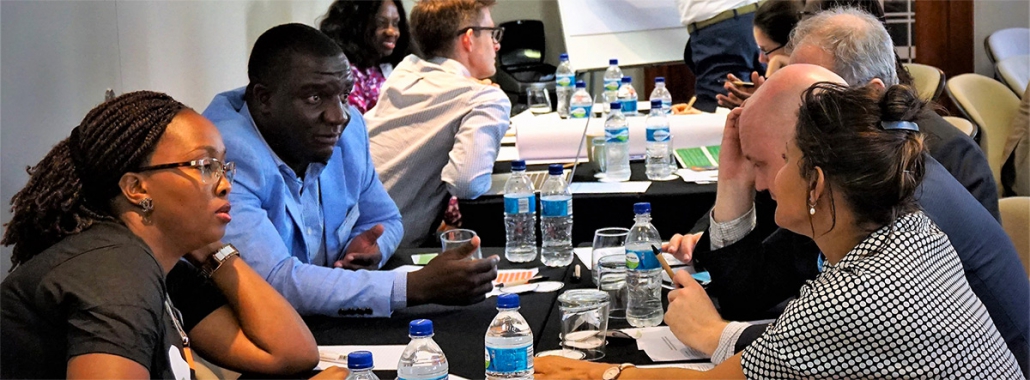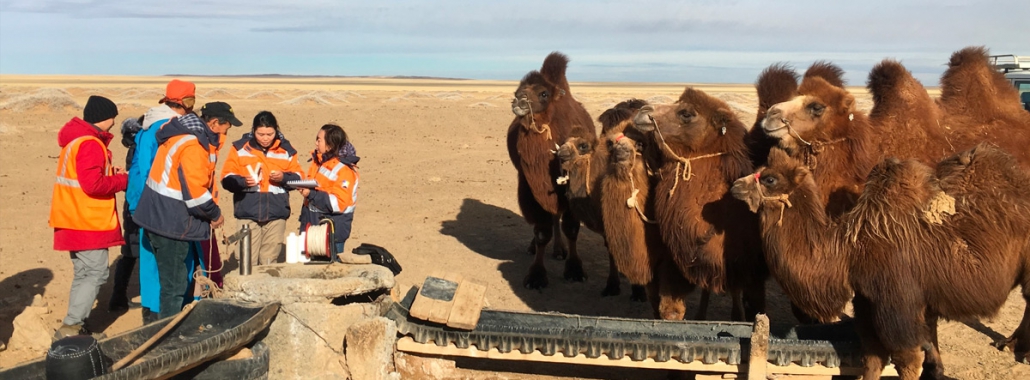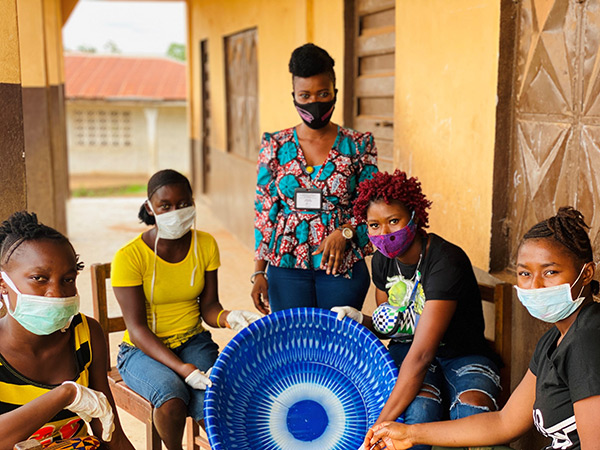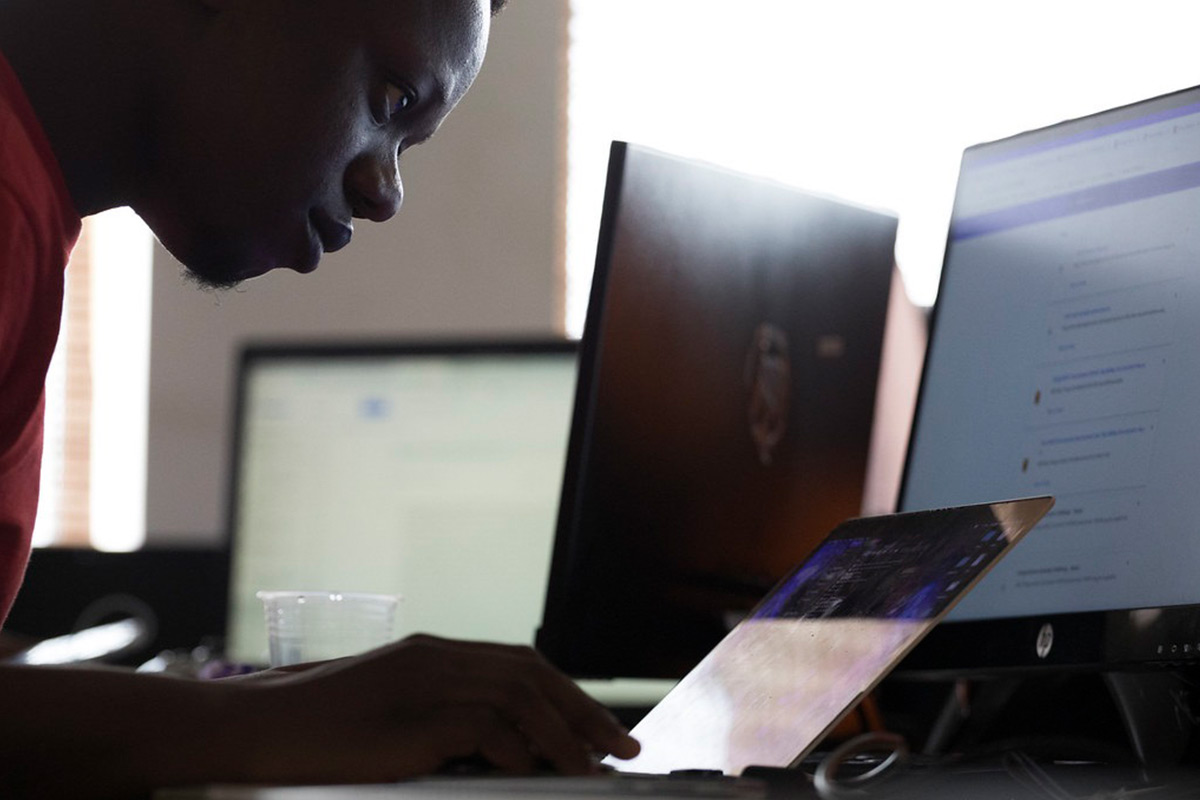Blog
-

-
Member of the Advisory Committee of the IFC-Canada Africa Local Economic Development Program
Mar 8, 2018

Transparency. Accountability. Good governance. Are the natural resource sectors there yet? Through the Extractive Industries Transparency Initiative (EITI), Publish What You Pay, National Resource Governance Institute, and the International Council on Mining and Metals, among others, our understanding of these interrelated goals has evolved. We have learned that transparency alone – simply making information available to the public – does not by itself deliver improved governance or tangible development outcomes. Inequalities and power asymmetries between groups and individuals undermine efforts to make information available and accessible, and to instill more accountable governments and companies. We need to better capture how transparency and accountability initiatives translate into benefits for all stakeholders – governments, communities, and the private sector of resource-rich countries. With the diversity of stakeholders, one voice that we must hear better is that of women and not just women from capital cities but specifically “on the ground” women leaders of local community groups.
Several new ventures are accepting this challenge. With financial support from the BHP Billiton Foundation, IFC and the World Bank are launching “From Disclosure to Development (D2D), Harnessing the Power of Data to Reinforce Natural Resource Contributions to Sustainable Development”. This effort will improve disclosure in oil, gas and mining by making select data more accessible, analyzable, and actionable especially for more localized groups. This program will further the Bank Group’s commitment in transparency and good governance across sectors. As Hans Peter Lankes, IFC Vice President for Economics and Private Sector Development, notes “we have to make information accessible, standardized, comparable,” emphasizing that data needs to connect to policy and accountability within both government and the private sector.
We have convened a series of multi-stakeholder conversations across the globe, including an event at the Brookings Institute in DC September 2017 and a focus group at African Mining Indaba in February 2018. The latter, cohosted by IFC, World Bank, ICMM and NRGI, explored the power of data and the current challenges and opportunities to making it more usable and actionable. These conversations will help ensure that lessons learned and tools generated through D2D are relevant to both suppliers and users of data.
IFC session on Transparency to enhance impacts in the natural resources sector, Mining Indaba 2018
What are we hearing so far? Deborah Wetzel, World Bank Senior Director for Governance, cautions that we are becoming “data rich and information poor.” Gina Barbieri, Principal Ombudsman of Compliance Advisor Ombudsman (CAO) at IFC, reminds that “transparency efforts should aim to enhance outcomes on the ground…The key challenge will be to decide how to balance data quantity with data quality and accessibility, and to translate data use to action.”
Multiple projects demonstrate that information and capacity building are powerful tools in ensuring good governance and development outcomes. Consider the case of Apurimac, the second poorest region in Peru, which is rapidly becoming one of the largest mining districts in the country. At the request of the Peruvian government, the World Bank and IFC are partnering to deliver technical assistance to municipalities to improve mining-revenue governance and support small-scale agriculture. Each institution is bringing its strengths to bear: The World Bank is addressing land governance and mining laws; IFC is building capacity within municipal governments to manage mining revenues and works with civil society to help them interpret data so that governments can be held accountable for their revenue management practices. Results to date are promising: six municipalities that had almost no consultation with their communities have adopted transparency practices. In the past year alone, these municipalities held 57 regular meetings with local leaders, hosted eight large accountability meetings, and answered 1,568 questions from the population related to municipal investment.
Transparency has also become a top priority for business. Geoff Healy, Chief External Affairs Officer at BHP, explained, “Our operation really does depend upon winning and maintaining trust with our communities … we believe the best way to build trust is through transparency.” This goes beyond fiscal and tax issues to increasingly involve environmental and social concerns. To do this effectively, companies seek guidance. Some companies note that they put huge effort into weighty sustainability reports which get very little readership. What methods would work better? Do we need trained local infomediaries to serve as conveners, catalysts and capacity builders?
Mongolia provides a good example of how trust can turn things around. In Mongolia’s South Gobi region, tensions between mining companies, communities and government were rising over water. Local citizens were concerned that mining operations would deplete or contaminate local water supply. Meanwhile, mining companies needed water for their operations. Although water-use data existed, it was insufficient to address community concerns and was rarely discussed in an open and organized way. To help bridge the gap between data supply and demand, IFC and several partners a) trained more than 1,000 local community, company, and government stakeholders on mining and groundwater systems, b) worked with companies to develop participatory monitoring approaches and c) improved company disclosure. In parallel, a platform for continuous stakeholder dialogue for the mining industry coordinated by IFC facilitated a common voluntary code of practice around water use and management.

IFC works in Mongolia to help bridge the gap between water data supply and demand.
So, what happens next? As demonstrated in the examples above, local voices and participation are essential. People on the ground must play a role in deciding what information is important, how it is collected, in what format it is shared and how it is used. And for this journey to be successful, we must leverage the knowledge and resources of others working on similar issues. During the Brookings event, Ngozi Okonio-Iweala, Former Minister of Finance in Nigeria, emphasized that “Once you’ve been able to measure, quantify and put numbers and data in the hands of a population, even if they don’t do anything about it, if nothing happens to government, the information is there and they can’t get away from it.” Many are calling on the World Bank Group to help support safe civic spaces for NGOs, media and academics to dialogue and debate about good practices across contexts. A community representative reminds us, “there are countries where simply asking for information puts you at risk. This needs to change.”
Related Content
Tackling COVID-19, Small and Medium Sized Businesses are Poised to Prevail
Monitoring and Evaluation

